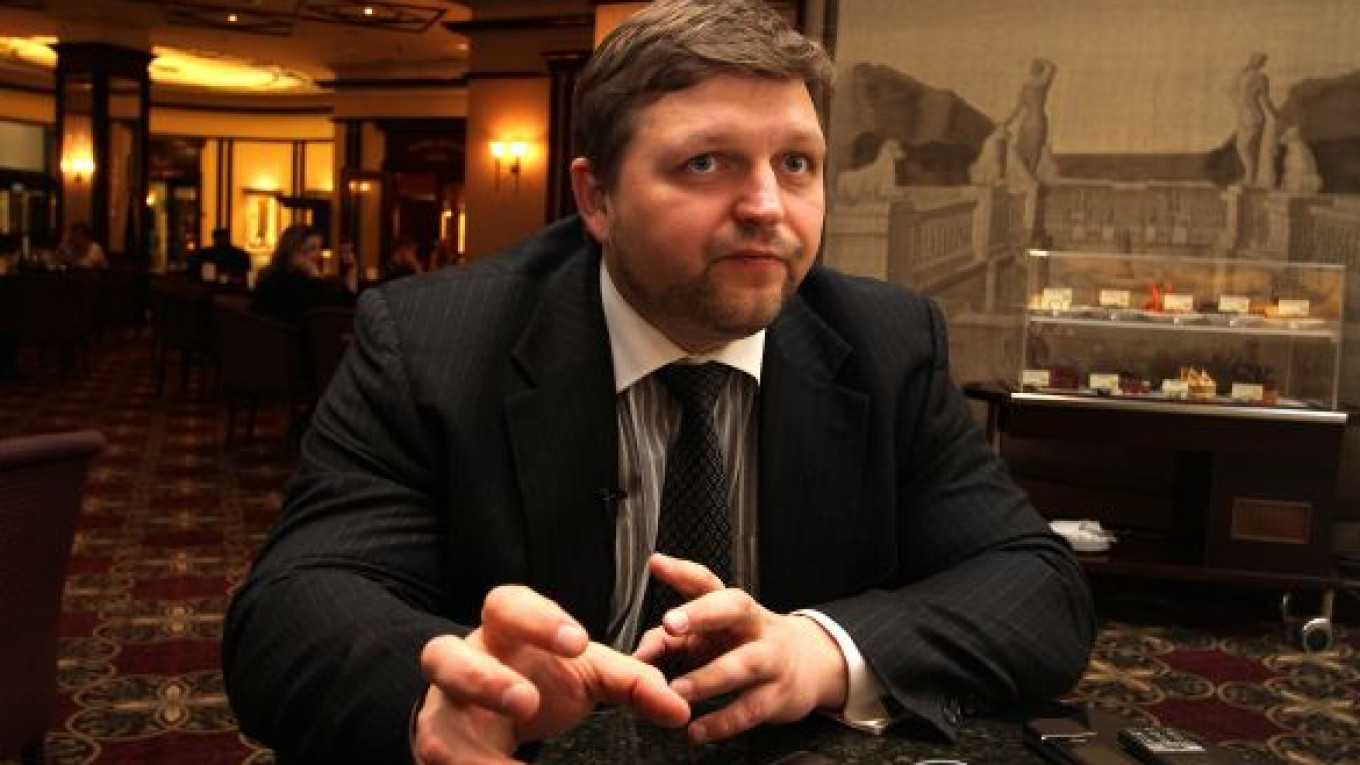A leader of the Nashi youth group on Tuesday became the latest Kremlin ally to accuse opposition leader Alexei Navalny of graft and tax evasion.
The allegations, which stem from a hacked e-mail exchange, could land Navalny behind bars.
Nashi commissar Konstantin Goloskokov wrote on his LiveJournal blog that Navalny should be tried for allegedly failing to pay taxes on a 40,000 euro ($50,400) payment from Kirov Governor Nikita Belykh and carrying out a paid “attack” on state-owned oil giant Rosneft.
The hacked messages, which date to 2010, include back-and-forths between Navalny and Belykh, considered one of the country’s most progressive governors.
Navalny worked as an adviser to Belykh from 2009 to 2010. His work included running a fund that supported Belykh’s initiatives.
Navalny and Belykh have denied breaking the law and refused to discuss the sums and circumstances described in the e-mails.
One exchange between Navalny and Belykh shows that Vladimir Ashurkov, then a senior manager for Alfa Group, paid Navalny to “attack” state-owned Rosneft, Goloskokov wrote, accusing Navalny of accepting a hefty bribe. Alfa Group is a co-owner of Rosneft competitor TNK-BP.
Ashurkov, who was asked to leave Alfa Group for supporting Navalny, is currently the managing director of Navalny’s Anti-Corruption Fund. He said by phone that he wouldn’t comment on the e-mails because they were obtained illegally.
A growing chorus of Kremlin-friendly officials has called for an investigation into information contained in the e-mails, which a cyber-bandit stole from Navalny’s Gmail account last month.
On Monday, State Duma Deputy Speaker Sergei Zheleznyak said parliament would study the correspondence with Belykh and threatened “serious consequences” for both men if allegations of wrongdoing were confirmed, Izvestia reported.
Earlier, Federation Council Senator Ruslan Gattarov asked Prosecutor General Yury Chaika to search the e-mails for evidence of a crime, Gattarov wrote on his Twitter blog on Tuesday.
Both Zheleznyak and Gattarov are members of the ruling United Russia party.
Navalny has asked the Investigative Committee to investigate the hack by “Hell,” who has a history of tampering with e-mails, Twitter accounts and LiveJournal blogs belonging to opposition figures.
On Tuesday, committee spokesman Vladimir Markin told Interfax that the request had been forwarded to police for reasons of jurisdiction, a move Navalny’s spokeswoman said was unlawful and showed reluctance to pursue an investigation.
Navalny and other opposition leaders have been under pressure from police and investigators since the middle of last month, when investigators raided apartments and offices, seizing electronics and documents, ostensibly as evidence for a criminal case into violence at a May 6 opposition rally.
Thirteen have been charged for allegedly instigating a brawl between demonstrators and riot police that ended in dozens of injuries and more than 400 detentions.
Opposition activists have seen raids on Navalny and other opposition leaders as punishment for their role in a street protest movement that has flared up periodically since allegations of fraud marred State Duma elections in December.
Navalny predicted on Monday that the e-mail scandal would blow over. “It always happens this way — idle chatter, a pair of paid articles and then it stops,” he wrote on his LiveJournal blog.
Pavel Salin, an analyst at the Center for Current Politics, said Navalny would determine his own fate.
“If he’s going to be stubborn and draw in opposition support, then they’re going to keep going after him,” Salin said by phone. “If, like Vladimir Ryzhkov, he surrenders in exchange for government perks, then everything will settle down.”
A Message from The Moscow Times:
Dear readers,
We are facing unprecedented challenges. Russia's Prosecutor General's Office has designated The Moscow Times as an "undesirable" organization, criminalizing our work and putting our staff at risk of prosecution. This follows our earlier unjust labeling as a "foreign agent."
These actions are direct attempts to silence independent journalism in Russia. The authorities claim our work "discredits the decisions of the Russian leadership." We see things differently: we strive to provide accurate, unbiased reporting on Russia.
We, the journalists of The Moscow Times, refuse to be silenced. But to continue our work, we need your help.
Your support, no matter how small, makes a world of difference. If you can, please support us monthly starting from just $2. It's quick to set up, and every contribution makes a significant impact.
By supporting The Moscow Times, you're defending open, independent journalism in the face of repression. Thank you for standing with us.
Remind me later.






